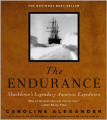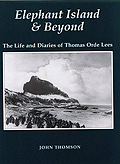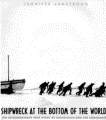Robert Selbie Clark (1882-1950)
Biographical
Biologist Endurance 1914-17 - 32 at the start of the expedition
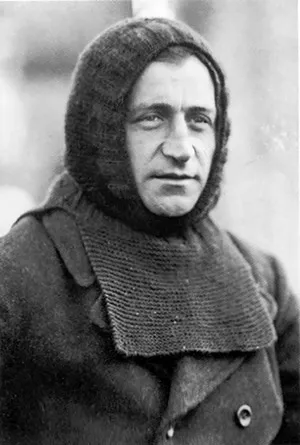
The Endurance Expedition
An almost archetypal "dour Scot", Clark nonetheless gained respect from the crew due to his willingness to turn out for any work that needed to be done and always pull at least his own weight. He was never quite so excited as when he had found a new or novel specimen for his biological collections. This made him the butt of a particular practical joke when the crew bottled some cooked spaghetti in one of his specimen jars causing "great excitement"!
Though he gathered many preserved creatures from dredges of the sea floor and many bird skins, they were all lost with the Endurance and none were taken when the men left for Elephant Island. In Worsley's words
"I felt sorry for Clark, as I lay there that night and realised that he had been obliged to leave on the Endurance the whole of his valuable collection that he had been at such pains to classify and study."
Biography
Robert Clark was born in Aberdeen and attended Aberdeen Grammar
School. He went on to Aberdeen University and put his education
to use as a zoologist at the Scottish Oceanographical Laboratory
in Edinburgh. While here, he worked on some of the specimens
brought back from Antarctica by W. S. Bruce from the
Scottish National
Antarctic Expedition 1902-04. In 1913 he obtained a position
as a naturalist in the Plymouth Marine Biological Association.
On return from the Antarctic, Clark served for the rest
of the First World War as a Lieutenant in the Royal Naval Volunteer
Reserve, and like many of the other men from the Endurance did
his service on minesweepers.
He was awarded the degree
of D.Sc. (Doctor of Science) in 1925 and became the director
of the Fisheries Research station in Torry, Aberdeen. In 1934
he was appointed Superintendent of Scientific Investigations
under the Fishery Board.
Robert Clark retired in 1948
and died on the 29th of September 1950 at home in Murtle, Aberdeenshire
Scotland.
References to Robert Clarke by Orde-Lees in "Elephant Island and Beyond" buy USA buy UK
-
The blizzard is still too bad for anything but urgent work outside the ship. The dog teams are not out, the scientists are not about doing their work, and also the ship's officers. In weather like this all these noisy undesirables congregate in the ward room, and having neither hobbies nor duty they pass the time in rioting. While a few find legitimate work, Clark, the biologist, is skinning a fine emperor penguin on the dinner table!
References to Robert Clark in Shackleton's book "South!" buy USA buy UK
- The quaint little penguins found the ship a cause of
much apparent excitement and provided a lot of amusement
aboard. One of the standing jokes was that all the adelies
on the floe seemed to know Clark, and when
he was at the wheel rushed along as fast as their legs could
carry them, yelling out "Clark! Clark!" and apparently very
indignant and perturbed that he never waited for them or
even answered them.
- Many bergs were in sight, and they appeared to be travelling
through the pack in a south-westerly direction under the
current influence. Probably the pack itself was moving north-east
with the gale. Clark put down a net in
search of specimens, and at two fathoms it was carried south-west
by the current and fouled the propeller. He lost the net,
two leads, and a line.
- The view was obscured, but we proceeded to the south-east
and had gained 24 miles by noon, when three soundings in
lat. 74° 4' S., long. 22° 48' W. gave 95, 128, and 103 fathoms,
with a bottom of sand, pebbles, and mud. Clark
got a good haul of biological specimens in the dredge.
-
On the 7th Wordie and Worsley found some small pebbles, a piece of moss, a perfect bivalve shell, and some dust on a berg fragment, and brought their treasure-trove proudly to the ship. Clark was using the drag-net frequently in the leads and secured good hauls of plankton, with occasional specimens of greater scientific interest.
-
The quarters in the 'tween decks were completed by the 10th, and the men took possession of the cubicles that had been built. The largest cubicle contained Macklin, McIlroy, Hurley, and Hussey and it was named "The Billabong." Clark and Wordie lived opposite in a room called "Auld Reekie."
-
All hands are cheered by the indication that the end of the winter darkness is near. . . . Clark finds that with returning daylight the diatoms are again appearing. His nets and line are stained a pale yellow, and much of the newly formed ice has also a faint brown or yellow tinge. The diatoms cannot multiply without light, and the ice formed since February can be distinguished in the pressure-ridges by its clear blue colour. The older masses of ice are of a dark earthy brown, dull yellow, or reddish brown."
-
By the middle of September we were running short of fresh meat for the dogs. The seals and penguins seemed to have abandoned our neighbourhood altogether. Nearly five months had passed since we killed a seal, and penguins had been seen seldom. Clark, who was using his trawl as often as possible, reported that there was a marked absence of plankton in the sea, and we assumed that the seals and the penguins had gone in search of their accustomed food.
-
This ice had been slightly thicker in the early part of September, and I assumed that some melting had begun below. Clark had recorded plus temperatures at depths of 150 and 200 fathoms in the concluding days of September.
-
Returning to the camp, we found the men resting or attending to their gear. Clark had tried angling in the shallows off the rocks and had secured one or two small fish.
-
Twice the usual number of penguin steaks were cooked at breakfast, and the ones intended for supper were kept hot in the pots by wrapping up in coats, etc. "Clark put our saucepanful in his sleeping-bag to-day to keep it hot, and it really was a great success in spite of the extra helping of reindeer hairs that it contained. In this way we can make ten penguin skins do for one day."
- One stop was due to water having run over the friction gear and frozen. It was a day or two later that we heard a great yell from the floe and found Clark dancing about and shouting Scottish war-cries. He had secured his first complete specimen of an Antarctic fish, apparently a new species.
Other Crew of the Endurance Expedition
Bakewell,
William - Able Seaman
Blackborow,
Percy - Stowaway (later steward)
Cheetham,
Alfred - Third Officer
Clark, Robert S.
- Biologist
Crean, Thomas
- Second Officer
Green, Charles J.
- Cook
Greenstreet,
Lionel - First Officer
Holness, Ernest
- Fireman/stoker
How, Walter E.
- Able Seaman
Hudson, Hubert T.
- Navigator
Hurley, James Francis
(Frank) - Official Photographer
Hussey,
Leonard D. A. - Meteorologist
James,
Reginald W. - Physicist
Kerr, A. J.
- Second Engineer
Macklin,
Dr. Alexander H. - Surgeon
Marston, George
E. - Official Artist
McCarthy, Timothy
- Able Seaman
McIlroy, Dr. James
A. - Surgeon
McLeod, Thomas
- Able Seaman
McNish, Henry
- Carpenter
Orde-Lees, Thomas
- Motor Expert and Storekeeper
Rickinson, Lewis
- First Engineer
Shackleton,
Ernest H. - Expedition Leader
Stephenson,
William - Fireman/stoker
Vincent, John
- Able Seaman
Wild, Frank
- Second in Command
Wordie, James M.
- Geologist
Worsley, Frank
- Captain
Biographical information
- I am concentrating on the Polar experiences of the men involved.
Any further information or pictures visitors may have will be gratefully received.
Please email
- Paul Ward, webmaster.
What are the chances that my ancestor was an unsung part of the Heroic Age
of Antarctic Exploration?
Ernest Shackleton Books and Video

South - Ernest Shackleton and the Endurance Expedition (1919)
original footage - Video

Shackleton
dramatization
Kenneth Branagh (2002) - Video

Shackleton's Antarctic Adventure (2001)
IMAX dramatization - Video

The Endurance - Shackleton's Legendary Expedition (2000)
PBS NOVA, dramatization with original footage - Video
Endurance : Shackleton's Incredible Voyage
Alfred Lansing (Preface) - Book
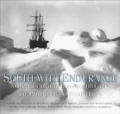
South with Endurance: Frank Hurley - official photographer
Book
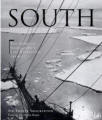
South! Ernest Shackleton Shackleton's own words
Book

Shackleton's Way: Leadership Lessons from the Great Antarctic Explorer
Book




